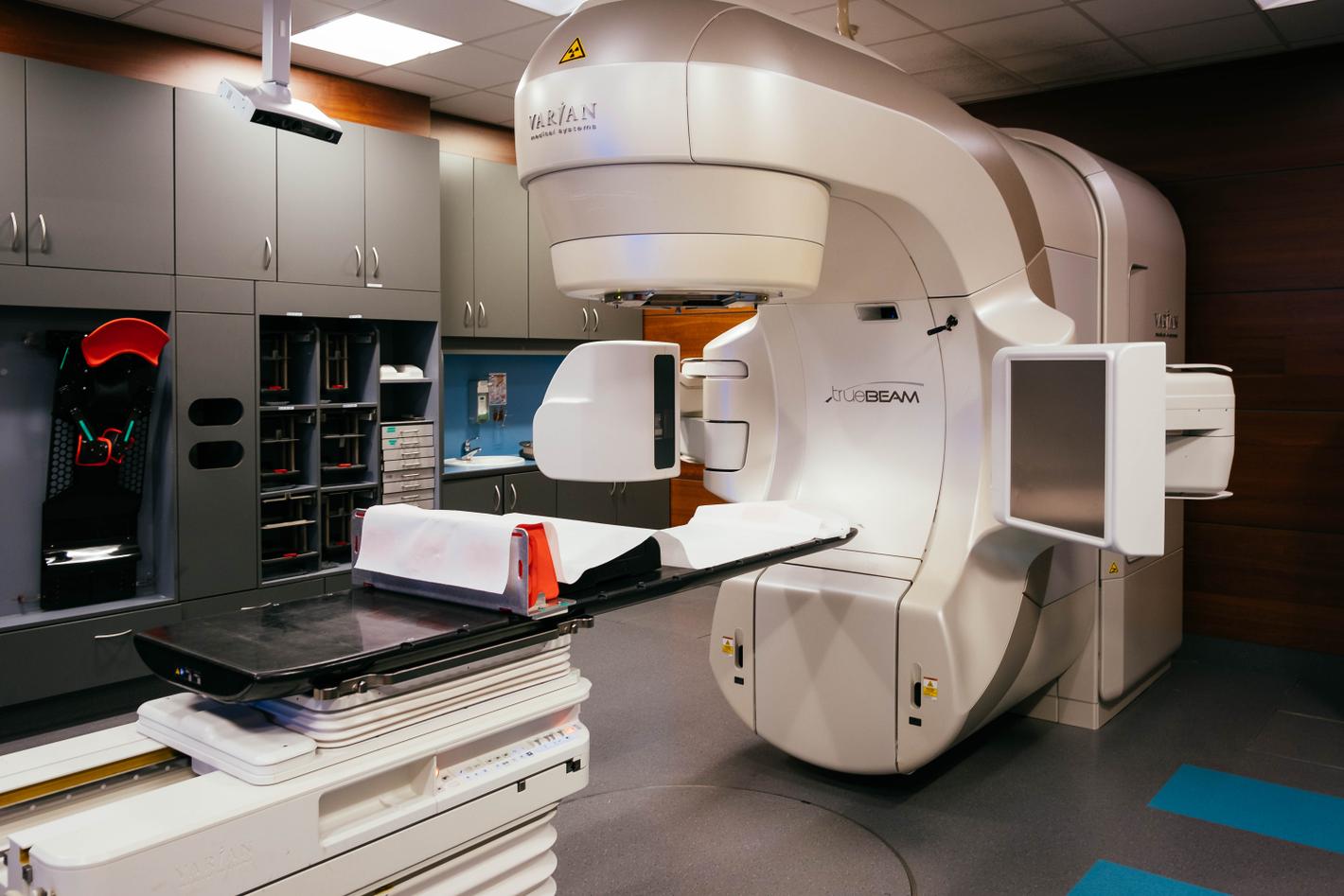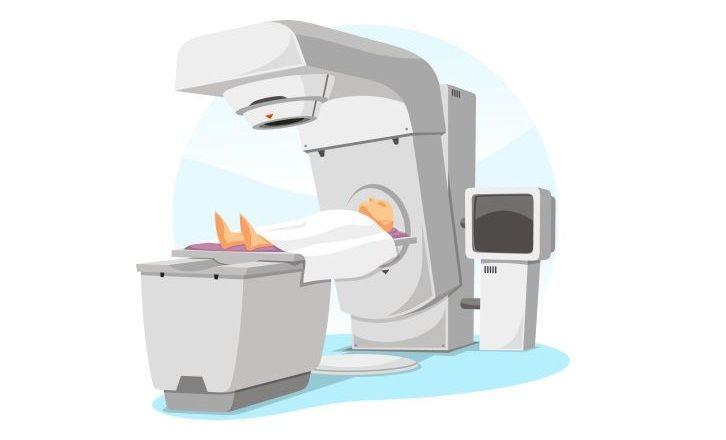Radiation therapy is one of the treatment options for men with non-metastatic prostate cancer. Physicians deliver the radiation to the entire prostate, as cancer cells often occur in several areas throughout the prostate. Only the main tumor is visible on a scan.
If the cancer returns, it often recurs right where that visible tumour was located. Delivering an additional radiation dose to this area appears to lower the risk of relapst, as shown by the FLAME trial: a large-scale study involving 571 patients at UMC Utrecht, Antoni van Leeuwenhoek, UZ Leuven, and Radboudumc.
Less recurrence
As part of the study, patients received 35 radiotherapy sessions with or without additional radiation boost delivered to the visible tumour. The men who had received the additional boost showed less recurrence over the first five years after treatment than the others. 92% of men who received the boost had low levels of PSA – an important indicator of prostate cancer – compared to 86% of the control group. It concerns men who were diagnosed with 'intermediate- or high-risk tumours'.
No additional adverse effects
“The radiation boost halved the percentage of men presenting with raised PSA levels over the first 5 years after treatment: from 15 to 8 percent,” radiation oncologist and research leader Linda Kerkmeijer of UMC Utrecht and Radboudumc clarified. “The radiation boost did not lead to additional adverse effects, which is an important outcome.” The treatment is currently available at UMC Utrecht, Antoni Van Leeuwenhoek, UZ Leuven and Radboudumc.
“Our results can benefit a substantial number of men,” radiation oncologist Floris Pos of the Netherlands Cancer Institute explained. “In the Netherlands, we annually give radiation therapy to hundreds of men who may qualify for this treatment. This could prevent a lot of distress: for our patients, cancer recurrence often means uncertainty, examinations, and intense follow-up treatments like surgery or hormone therapy.”
Meanwhile, we have started a follow-up trial which combines the new boost treatment with only five radiation sessions, which could become the standard for the future.Prof. dr. Karin Haustermans - radiation-oncologist
Only five radiation sessions
At the start of the FLAME trial, standard treatment for these patients was 35 radiation sessions. Over the past years, this number has been scaled down to 20, and 5 for men with less aggressive tumor types.
“Meanwhile, we have started a follow-up study that combines these new radiation boosts with 5 radiation sessions”, UZ Leuven radiation oncologist Karin Haustermans says. “It appears that 5 radiation sessions could become the new standard for this group of patients as well.”

This radiation therapy device is used at UZ Leuven for treating prostate cancer.
Participate in the trial?
If you want to find whether you qualify for the follow-up trial, please contact your attending physician.

